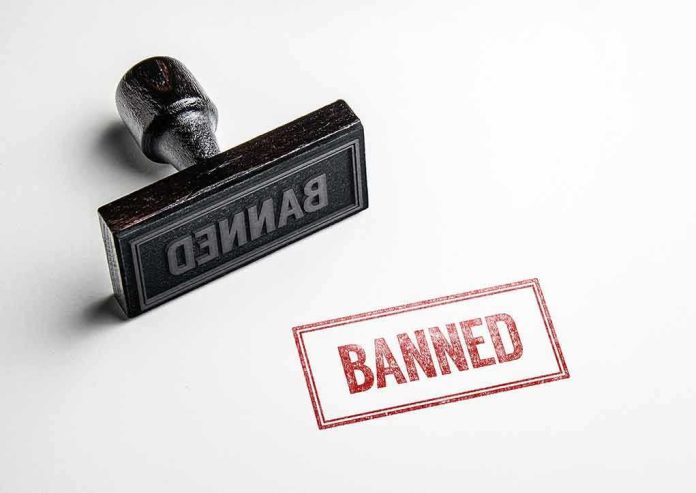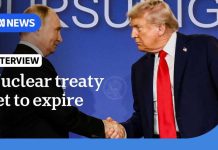
When a mayor tells a Christian resident he is “not welcome” for questioning street signs honoring a pro-terror figure, Americans see a direct attack on free speech and religious liberty—sparking outrage across constitutionalist communities.
Story Snapshot
- Dearborn’s Democrat mayor publicly rebuked a Christian resident for opposing street signs honoring a controversial Arab American leader.
- The confrontation highlights escalating tensions over free speech, religious tolerance, and political polarization.
- Jurisdictional confusion—county, not city, installed the signs—adds to the controversy.
- The mayor’s remarks have drawn national scrutiny, raising alarms about exclusion and the erosion of traditional American values.
Mayor’s Confrontation Erupts Over Street Signs Honoring Pro-Terror Figure
At a Dearborn City Council meeting in September 2025, Mayor Abdullah H. Hammoud, a Democrat and outspoken advocate for Arab American interests, told Edward “Ted” Barham—a Christian minister and local resident—that he was “not welcome” in the city after Barham objected to new street signs honoring Osama Siblani. Barham criticized Siblani’s alleged support for groups like Hezbollah and Hamas, comparing the street signs to naming a road after terrorist organizations. The mayor responded by labeling Barham a “bigot,” “racist,” and “Islamophobe,” igniting a heated debate over the boundaries of public discourse and the responsibilities of elected officials.
This incident stands out in Dearborn, a city with the highest percentage of Muslim residents in the U.S., and has become a flashpoint for underlying tensions between religious and ethnic groups. The street signs honoring Siblani, publisher of Arab American News and a figure with a history of divisive commentary on Middle Eastern issues, were approved and installed by Wayne County—not the city—highlighting jurisdictional confusion. The choice to honor Siblani was intended to recognize his contributions to the Arab American community, but his past statements regarding “martyrs” and resistance have drawn sharp criticism from residents wary of any perceived celebration of extremist ideologies.
Public Backlash and National Scrutiny Intensify
Following the council exchange, national media outlets reported extensively on the controversy, amplifying concerns about religious tolerance and free speech. Mayor Hammoud has not issued a formal apology or retraction as of September 19, 2025, and the city has offered no official follow-up. Both Siblani and Barham have refrained from further public statements. Community debate remains intense, with some residents supporting the mayor’s defense of diversity and others condemning his remarks as exclusionary and an affront to constitutional rights. The street signs remain in place, and Wayne County has reiterated that the decision to honor Siblani was theirs alone, not the city’s.
The controversy has sparked concerns among conservative and Christian residents about the erosion of traditional values and the marginalization of dissenting voices. Critics argue that the mayor’s response sends a chilling message to those who question government decisions, raising alarms about government overreach and the suppression of legitimate public debate. Supporters of Hammoud, meanwhile, claim that strong language is justified in confronting perceived bigotry. This divide reflects broader national tensions over identity politics, free expression, and the role of local government in recognizing community leaders.
Impact on Civic Life and Constitutional Principles
The short-term impact of the incident has been increased polarization and heightened scrutiny of public officials in Dearborn. In the long term, the episode threatens to undermine interfaith relations, civic engagement, and trust in local governance. For a city historically known for robust debate and community activism, the mayor’s “not welcome” message to a dissenting resident raises serious questions about inclusion, representation, and the safeguarding of constitutional freedoms. Many fear that such rhetoric, if left unchallenged, could erode the foundational principles of open dialogue and equal participation—cornerstones not just of Dearborn, but of American democracy itself.
Video: Democrat Muslim mayor tells Christian resident he is 'not welcome' in Dearborn https://t.co/oF6hya3MuM pic.twitter.com/LIRB91J94o
— American Military News (@AmerMilNews) September 19, 2025
Expert analysis from political commentators and scholars underscores the symbolic weight of the Dearborn confrontation as a microcosm of national debates over diversity, free speech, and government authority. While some view the mayor’s words as a necessary stance against bigotry, others see a dangerous precedent of silencing opposition and labeling dissent as hate. With media attention still focused on Dearborn, the incident is likely to influence future discussions on public honors, minority representation, and what it truly means to protect constitutional rights in an increasingly divided political landscape.
Sources:
Wayne County installs Dearborn street signs honoring Arab American leader (Detroit Free Press)



